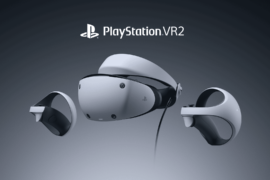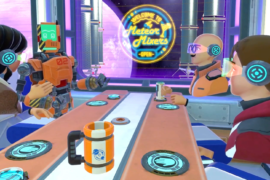Meta’s CTO explained how Quest 3’s controllers are tracked.
Meta officially revealed Quest 3 on Thursday, launching in fall starting at $500. It will come with Meta’s new Touch Plus controllers, which lack both the IR LED rings seen in Quest 2’s Touch controllers and the cameras seen in the self-tracking Touch Pro controllers.
In Quest 3’s announcement, Meta simply said this is “thanks to advances in tracking technology,” but in an Instagram ask me anything (AMA) session on Friday, Meta CTO Andrew Bosworth went into much more detail.
He revealed that Touch Plus still have infrared LEDs on them, on their face instead of along a tracking ring. Given these LEDs will be occluded from the headset much more often – when covered by your hand or facing away from the headset’s cameras – Quest 3 also continuously runs its controller-free hand tracking, and this is fused with the controller LED tracking. As with all VR controllers, all this optical tracking data is combined with the accelerometers and gyroscopes to produce the final tracking result.
Meta’s approach with Touch Plus suggests Quest 3’s controller-free hand tracking may be significantly improved over previous Quests, likely due to its depth sensor. Meta hasn’t yet said much about Quest 3’s hand tracking though, other than to hint it will “will take another step forward.”
Bloomberg’s Mark Gurman speculated that Quest 3 may have controller tracking issues in some games, leading some in the VR industry to worry Touch Plus may have inferior tracking to Quest 2’s Touch. However, when asked about these concerns, Beat Saber co-founder Jaroslav Beck, who stepped down in May, replied “It’s good. Don’t worry.”
Since the development of the original Oculus Quest, Beat Saber’s Expert+ difficulty mode has been used as an internal benchmark for controller tracking by Meta. Over the weekend a Meta employee claimed Quest 3’s controllers “pass the Expert+ test” too.
Tracking aside, ditching the rings has significant usability advantages. As we described in our Quest Pro review, you can bring the controllers much closer together at any angle since you’re no longer at risk of bashing plastic you can’t see in VR. That may sound unimportant, but it actually opens up entirely new precise hand-to-hand interactions and improves existing ones such as reloading firearms.



